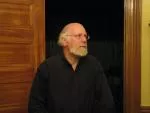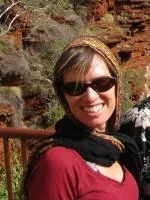
Whither Blind Justice? Effects of Physiognomy on Judicial Decisions
Leslie Zebrowitz, Brandeis University
Monday, February 22, 2010 12:30 pm
Berkman Center, 23 Everett Street, second floor
This talk is part of The Psychology and Economics of Trust and Honesty speaker series, led by Berkman Fellow Judith Donath and hosted by the Berkman Center for Internet & Society’s Law Lab. For more related to Zebrowitz's talk, see this page.
Although we value ‘blind justice’, judges and juries are not blind to the physical appearance of defendants. Moreover, research shows that peoples’ facial appearance influences impressions of their honesty and judgments of their culpability, effects that have been shown to bias decisions in the courtroom. I will discuss research that documents these effects, placing them into a theoretical framework.
About Leslie
Leslie Zebrowitz is the Manuel Yellen Professor of Social Relations in the Department of Psychology at Brandeis University.
Links
- Leslie's Faculty Webpage
- Zebrowitz, L.A., & Montepare, J.M. (2008). Social Psychological Face Perception: Why Appearance Matters. Social and Personality Psychology Compass, 2, 1497-1517.
- Zebrowitz LA, Luevano V, Bronstad MP, Aharon I. (2009).Neural Activation to Babyfaced Men Matches Activation to Babies. Social Neuroscience.4:1–10.
- Zebrowitz, L.A., Voinescu, L., & Collins, M.A. (1996). ‘Wide eyed’ and ‘crooked-faced’: Determinants of perceived and real honesty across the life span. Personality and Social Psychology Bulletin, 22, 1258-1269.
- Zebrowitz,L.A. & McDonald, S. (1991). "The impact of litigants' babyfacedness and attractiveness on adjudications in small claims courts." Law and Human Behavior 15, 603-623.
You might also like
- communityLegal Alignment for Safe and Ethical AI




